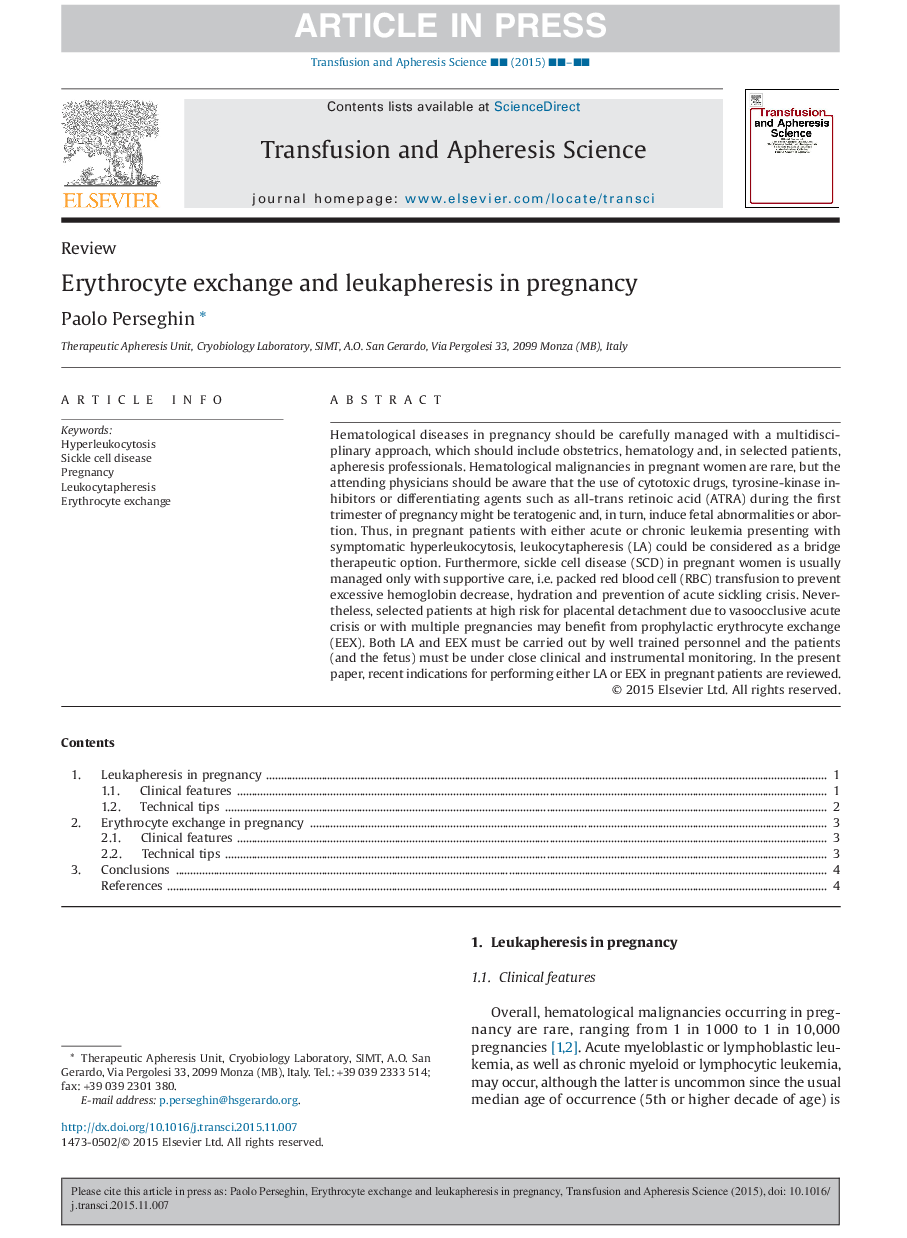| Article ID | Journal | Published Year | Pages | File Type |
|---|---|---|---|---|
| 6114002 | Transfusion and Apheresis Science | 2015 | 4 Pages |
Abstract
Hematological diseases in pregnancy should be carefully managed with a multidisciplinary approach, which should include obstetrics, hematology and, in selected patients, apheresis professionals. Hematological malignancies in pregnant women are rare, but the attending physicians should be aware that the use of cytotoxic drugs, tyrosine-kinase inhibitors or differentiating agents such as all-trans retinoic acid (ATRA) during the first trimester of pregnancy might be teratogenic and, in turn, induce fetal abnormalities or abortion. Thus, in pregnant patients with either acute or chronic leukemia presenting with symptomatic hyperleukocytosis, leukocytapheresis (LA) could be considered as a bridge therapeutic option. Furthermore, sickle cell disease (SCD) in pregnant women is usually managed only with supportive care, i.e. packed red blood cell (RBC) transfusion to prevent excessive hemoglobin decrease, hydration and prevention of acute sickling crisis. Nevertheless, selected patients at high risk for placental detachment due to vasoocclusive acute crisis or with multiple pregnancies may benefit from prophylactic erythrocyte exchange (EEX). Both LA and EEX must be carried out by well trained personnel and the patients (and the fetus) must be under close clinical and instrumental monitoring. In the present paper, recent indications for performing either LA or EEX in pregnant patients are reviewed.
Related Topics
Health Sciences
Medicine and Dentistry
Hematology
Authors
Paolo Perseghin,
